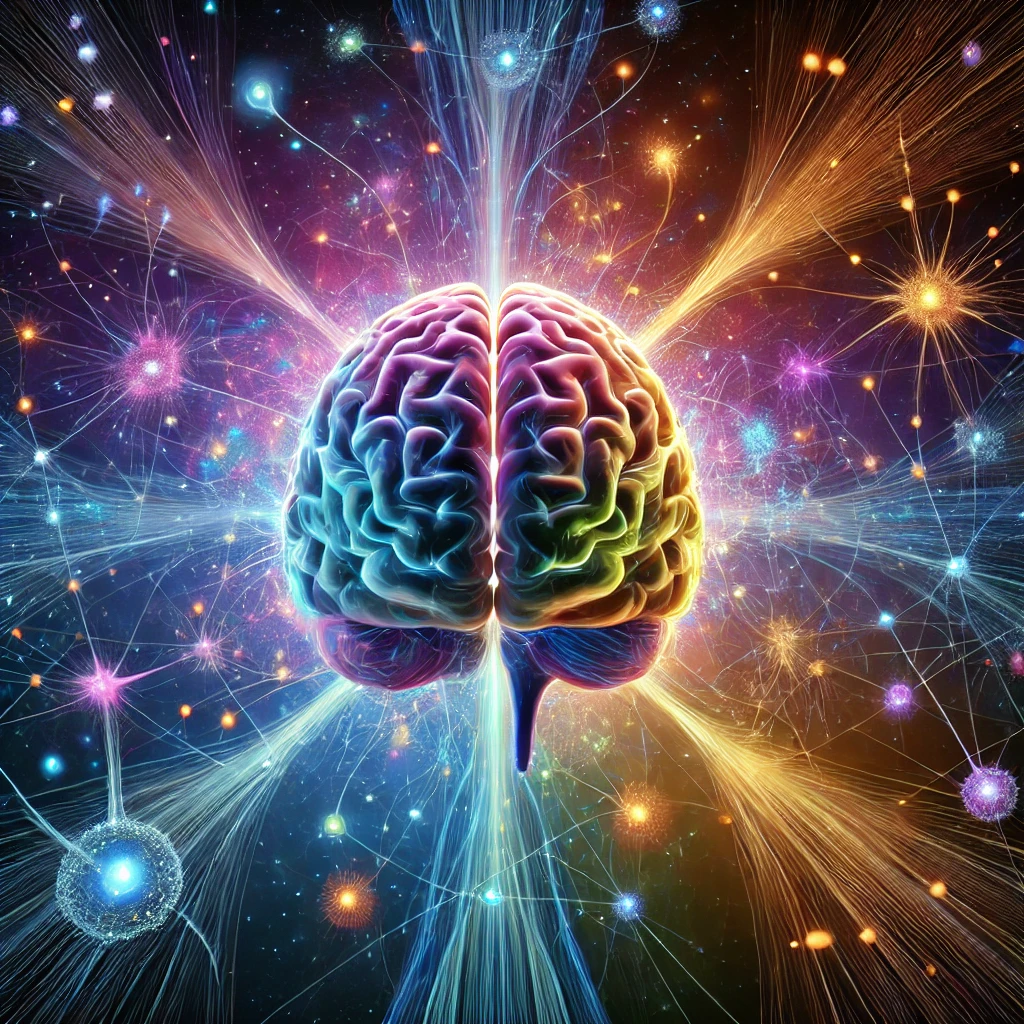Hello and welcome to Neuroscience for Newbies. My goal in starting this endeavor is to share the basics about neuroscience I have learned in terms that mere mortals can understand. In future posts, I will be getting deeper into various facets of neuroscience, but today, we will start at the very beginning…what the heck is neurocience anyway?
Neuroscience is the scientific study of the nervous system, encompassing its structure, function, development, genetics, biochemistry, physiology, pharmacology, and pathology. It explores how the brain and nervous system influence behavior and cognitive functions, as well as how they interact with other systems in the body. Neuroscience is inherently interdisciplinary, drawing from biology, chemistry, psychology, physics, computer science, and mathematics to better understand how neural circuits underlie complex behaviors and mental processes.
At the core of neuroscience is the goal of understanding how neurons—the basic cellular units of the brain—communicate with each other and how these communications give rise to thoughts, emotions, movements, sensations, and other vital functions. Research in neuroscience has significant implications for fields such as medicine, psychology, artificial intelligence, and cognitive science, especially when addressing neurological disorders like Alzheimer’s, Parkinson’s, epilepsy, and mental health conditions.
Major Fields within Neuroscience:
-
Molecular and Cellular Neuroscience This field focuses on the molecular and cellular mechanisms that drive the function of the nervous system. It involves studying the roles of specific proteins, neurotransmitters, and genes in neuronal function and how these molecular components affect the formation and communication of neural circuits.
-
Neuroanatomy Neuroanatomy is the study of the physical structure and organization of the nervous system. It involves mapping neural pathways, understanding brain regions, and deciphering how different areas are connected to facilitate specific functions like memory, sensation, or motor control.
-
Cognitive Neuroscience Cognitive neuroscience investigates the neural mechanisms underlying cognition, including memory, perception, language, problem-solving, and decision-making. This field bridges neuroscience with psychology, aiming to explain how brain activity translates into complex mental functions and behaviors.
-
Behavioral Neuroscience Also known as biological psychology or neuropsychology, behavioral neuroscience studies how the brain and nervous system influence behavior. Researchers in this area examine the neural basis of behaviors such as learning, emotion, aggression, and addiction.
-
Developmental Neuroscience This field examines how the nervous system develops from early stages of embryogenesis through adulthood. Developmental neuroscience investigates processes such as neural differentiation, synaptogenesis (the formation of synapses), and neuroplasticity (the brain’s ability to adapt and reorganize).
-
Clinical Neuroscience Clinical neuroscience bridges research with medical practice, focusing on diagnosing and treating neurological and psychiatric disorders. It involves understanding diseases like stroke, epilepsy, multiple sclerosis, schizophrenia, and depression and developing treatments, including pharmacological and therapeutic interventions.
-
Computational Neuroscience Computational neuroscience uses mathematical models and simulations to understand the brain’s function. This field applies principles from computer science and engineering to model neural networks, allowing researchers to predict how brain circuits process information and adapt to changes.
-
Neuroengineering Neuroengineering involves applying principles of engineering to develop technologies that interface with the nervous system, such as brain-computer interfaces, neural prosthetics, and devices to treat neurological conditions like Parkinson’s disease. This field has important applications in rehabilitation and restoring function to individuals with disabilities.
-
Neuropharmacology Neuropharmacology studies how drugs affect the nervous system, focusing on how chemical agents influence neural activity and behavior. It is crucial in developing treatments for neurological and psychiatric conditions by understanding how neurotransmitter systems can be manipulated through drugs.
-
Systems Neuroscience Systems neuroscience looks at how different neural circuits function together as a system to control broader functions such as motor coordination, sensory perception, or memory. It aims to understand how complex behaviors emerge from networks of interacting neurons across multiple brain regions.
Interdisciplinary Connections
Many students of neuroscience often combine their studies with other fields such as:
- Psychology: Exploring mental processes, emotions, and behaviors through a biological lens.
- Biology: Delving deeper into genetics, physiology, and anatomy as they pertain to the nervous system.
- Computer Science/AI: Particularly in areas like computational neuroscience and neuroengineering.
- Medicine: Studying neuroscience as a prelude to medical training in neurology, psychiatry, or neurosurgery.
Neuroscience offers a rich and diverse academic and research landscape, preparing students for careers in scientific research, healthcare, pharmaceuticals, biotechnology, and even policy, law, and education related to the brain and behavior.
